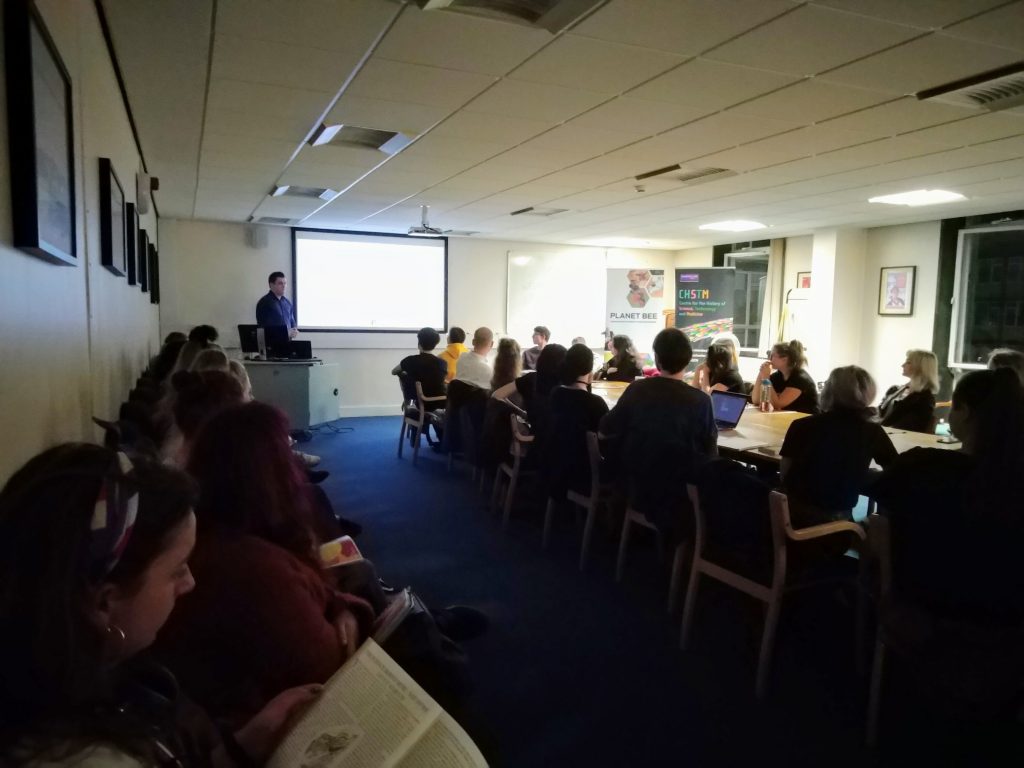
CHSTM Research Seminar: 2 May 2023
2 May 2023, 4pm
CHSTM Seminar Room: Simon 2.57 [maps and travel]
The seminar will also be streamed.
Dr Scott Midson, Liberal Studies, University of Manchester
Eros, erotics, robotics: Towards a critical reading of perfection in lovotics
Abstract: In 2004, David Levy published Love and Sex with Robots, in which he outlines a utopian future where humans will opt to pursue sexual and even marital relationships with robots. Robots, Levy contends, will serve as ‘perfect lovers’: they are not demanding, they can be tailored to meet the needs of their users, and they are reliable. Pushing back against Levy’s fanciful visions, though, many commentators—including social theorist Sherry Turkle, anthropologist Kathleen Richardson, and theologian Noreen Herzfeld—have critiqued the idea of perfect robotic lovers as a contradiction in terms. For Turkle, love with robots is misleadingly uni-directional; for Richardson, who leads the ‘Campaign Against Sex Robots’, sex with robots facilitates misogynistic attitudes and behaviours; and for Herzfeld, any kind of partnership with robots lacks the completeness of full human pairings with another person. Across these examples and elsewhere, we find that perfect love doesn’t make sense without reciprocity, emotion, and understanding—all of these are things that robots, at least at present, lack. So what does human, robotic, and so-called perfect love entail?
Perfection is a significant notion in philosophy and theology: it reveals that which we aspire to, which is either divine or human, or somewhere confusingly in between. Robots that bear the image of the human but that are also notably different from humans—which is a tension that is particularly expressed in the controversy surrounding sexbots—exist in this ambiguous zone. By considering robots alongside theological and philosophical understandings of perfection and perfect love, it is possible to reflect on the nature of our desires vis-à-vis robots. Does perfect love involve the otherness of another person, as many religious and subsequent secular accounts of human nature contend, or is it something that can be mechanically replicated? Or, as Michael Hauskeller has argued, is perfect love something that transcends the human and is therefore something that can only be mechanically realised? I argue that, through responding to such questions, it emerges that we have conflicting desires that we design into robots that underwrite our anxieties about them. Identifying and addressing such desires—and their theological and philosophical foundations—is thus important for developments in human-robot interaction (HRI). To this end, this talk sets out a discussion between philosophy, theology, and lovotics as we grapple with the meaning and trajectory of our affections and desires in our current and future technocultural contexts.
Take a look at the CHSTM Research Seminar Programme
Seminar Convenors 2022-23: Professor Ian Burney and Dr Neil Pemberton






0 Comments